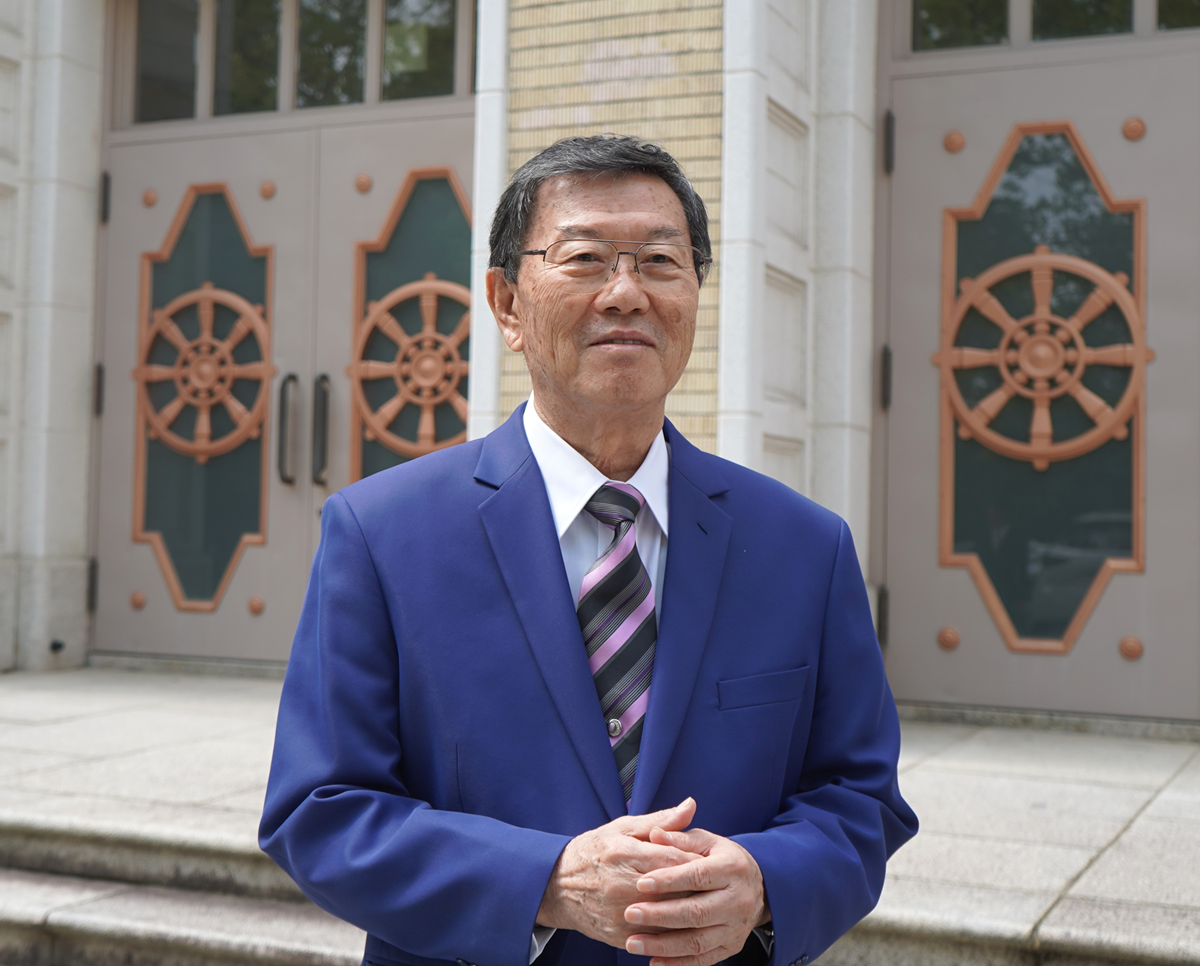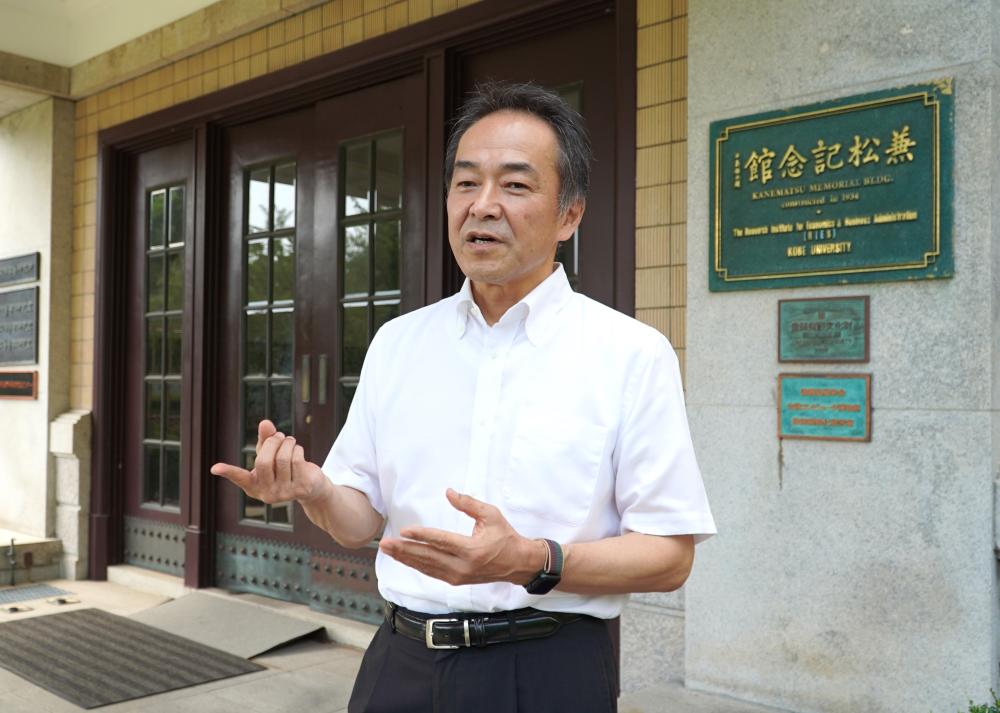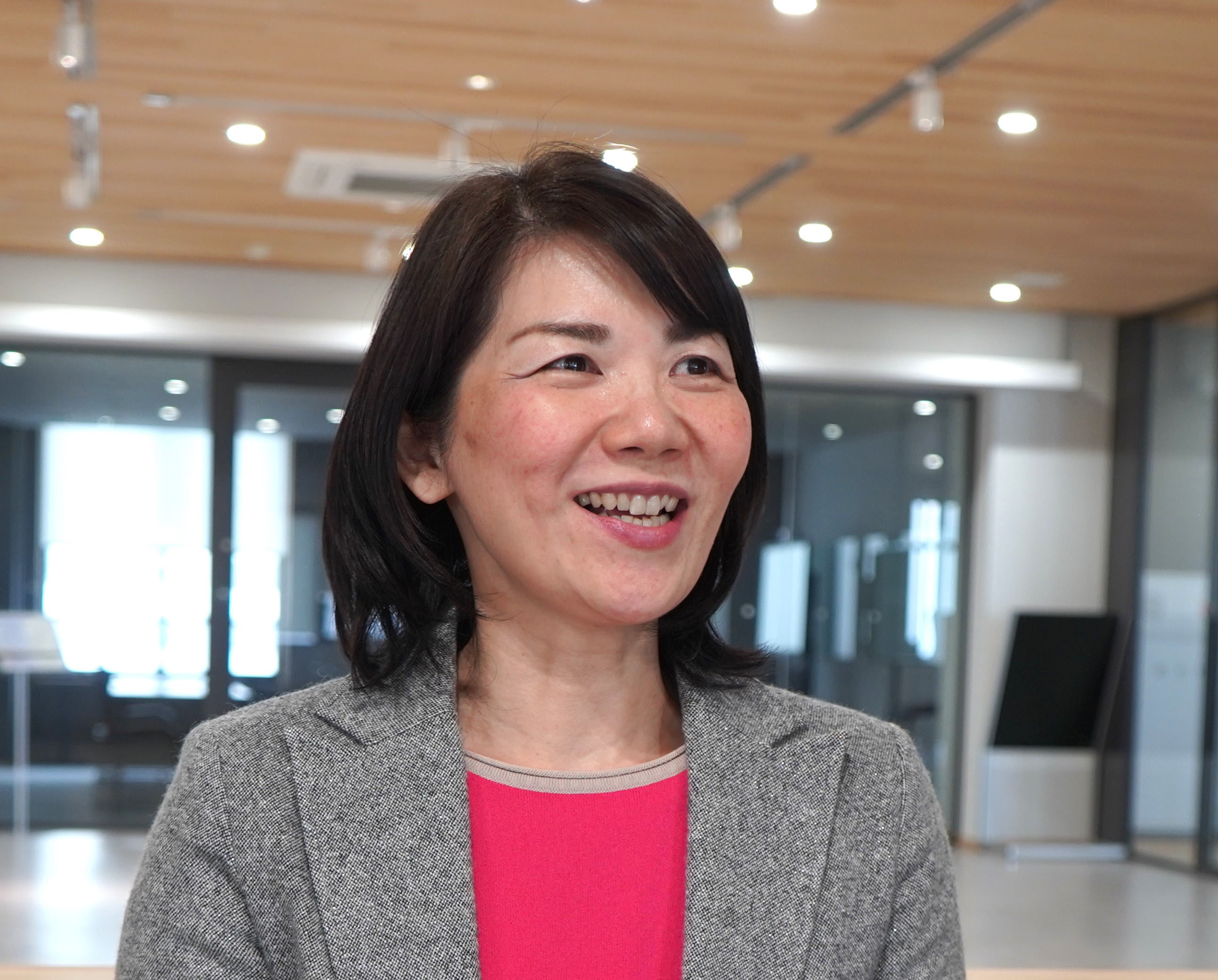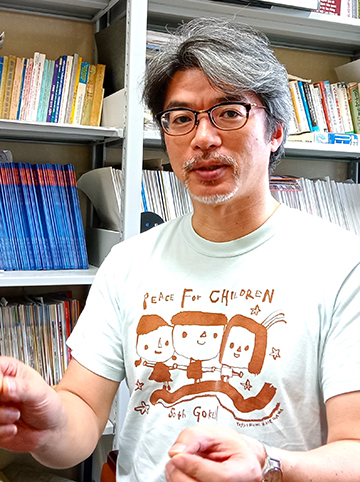
As Japan ponders the best way of taking in foreign workers, a government panel of experts has presented an interim report on the abolition of the Technical Intern Training Program. While heralding the ideal of contributing to the international community, the report focuses on abolishing the current system used as a filler for manpower shortages, and sets forth a new system with an additional target of securing the labor force. As Japan reviews a 30-year-old system in which absconding interns has become a social issue, and which has attracted criticism from the international community, how will the situation regarding foreign workers change? With birth rates declining and populations aging all over Asia, can Japan become an attractive destination for foreign workers amid the anticipated scramble for available labor? We asked Associate Professor SAITO Yoshihisa of the Graduate School of International Cooperation Studies and an expert in labor law, foreign interns and the current situation in Vietnam, for his thoughts on these questions.
Abolished in name only
The interim report from the panel of experts seems to signal a major shift in policy regarding foreign workers. How do you rate it?
Associate Professor Saito:
Frankly speaking, there is almost nothing to commend about it. Although the report speaks of abolishing the Technical Intern Training Program and replacing it with a new system, I think they haven’t even changed the headline. The new program’s objectives are heralded as worker “training” and “securement”, but I can detect the usual “Japan First” mentality when it comes to “training”. By using training as the justification for accepting inexperienced workers, it’s possible to keep them confined to one workplace, as is the case now. The basic framework will remain largely unchanged, although restrictions will be eased on job transfers, which are not permitted in principle under the current Technical Intern Training Program.
Worker “securement” is, in short, getting interns come to work in places shunned by the Japanese and then wanting to keep them there. However, young people in other countries are no more willing than the Japanese to do that type of work. Some people still say they want young people from developing countries to come here and work without fuss, but they are dreaming. The idea of using foreigners as a labor stopgap was a problem from the very start.
| Current Technical Intern Training Program | Proposals for New System | |
|---|---|---|
| Objectives | Contribution to the international community through personnel training | Personnel securement and personnel training |
| Job transfer | Not permitted (in principle) | Ease the transfer restrictions, but not abolish them completely |
| Japanese language requirement | Not established | Introduction of a Japanese language ability requirement under consideration |
| Supervision and support framework | Systems are insufficient. Some sending organizations are unethical | Implement stricter conditions for supervisory organizations, etc. |
There are more than 320,000 technical interns working in Japan, of which more than half are Vietnamese. There seem to be many who want to work in Japan.
Associate Professor Saito:
Vietnamese workers currently choose Japan because it is easy to come here. Don’t forget that it’s extremely expensive to send people over to Europe or Australia. Moreover, although Korea boasts higher salaries than in Japan and has a lot to attract young people in terms of electrical goods, entertainment, films, etc. it also has significant entry barriers such as restrictions on numbers and birthplace in addition to language testing. In contrast, Japan’s program has no language tests (except for nursing programs) and an applicant just needs to pay a fee to secure an interview. Many also select Taiwan, because after a short post-interview language training period they can soon cross there and work for a longer time.
I have been insisting however that Japan should also establish a language requirement. The expert panel was also informed of this, and they indicated the need for measures to guarantee Japanese language proficiency in their interim report, so this might be implemented to some extent.
I clearly understand the need for Japanese proficiency when Vietnamese technical interns are requesting my support. Many interns are unable to communicate as they cannot even read the information that is necessary for their support, such as the name of the company where they work or their supervisory organization (the non-profit organization that supports and guides the intern to the employer in Japan). Before coming to Japan, candidate interns study Japanese as part of their training at the sending organization in their own country, but many still have to resort to memorizing their self-introductions at interviews. As a result, they encounter a lot of needless trouble after arriving in Japan and find it difficult to get help.
At a loss with no way back
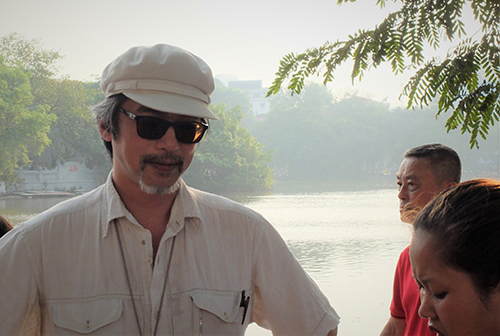
As technical interns must pay fees to the sending organization and various middlemen, they arrive in Japan saddled with huge debts. Isn’t it necessary to redress this issue?
Associate Professor Saito:
Debt is a big problem for the interns, but it is more important to eliminate the situation where they find that the actual conditions in Japan differ to what they were led to believe before coming. Interns may think they will be able to pay off all their debts within one year based on the wages indicated to them in their own country, but after coming to Japan they receive lower than expected income and must pay high rents. As a result, they can send back much less money than planned to their home countries. Meanwhile the interest on their debts grows and grows. They are not even allowed to do part-time work, let alone change jobs. To avoid causing their families, who are acting as their guarantors, to lose their property, the interns are compelled to work illegal overtime paying just 500 yen an hour. Sometimes they abscond, only to get involved in illegal employment schemes.
The state and the media tend to focus exclusively on “debt” and “disappearances,” and they easily connect the two and think they understand the situation. However, the real problem is that many heavily in debt workers arrive in Japan with false perceptions due to the complex system involved in sending and receiving interns and being fed with incorrect or incomplete information about the real conditions.
You have consulted with many Vietnamese technical interns. What do they say about it? Has COVID also had an impact?
Associate Professor Saito:
The vast majority want to change their workplace. Illegal working conditions, poor quality living conditions, workplace violence and harassment, and an inability to get on with others are just some of the reasons. I often receive appeals for help from absconders who couldn’t bear their situation any longer. Others that stand out are those wanting to discuss matters such as being forced to quit and return home, their company’s refusal to deal with work-related injuries, or what to do after becoming pregnant. After ascertaining each situation, I provide advice, coordinate with related agencies, and directly discuss with the employers and supervisory organizations.
Last year, I formed the Kobe Migrants Association, which also acts as a labor union, to receive consultations and issue information, mainly via Facebook. We have about 8,000 people currently registered.
After a long suspension due to COVID, the receiving of interns recently restarted but a nasty situation has developed. Many of the companies that took on interns were not well set up for business even before COVID, so a lot of them lost work and went bankrupt due to the pandemic. Other businesses had to employ other workers as they could not wait for their interns to come to Japan.
However, underhanded sending organizations still send people to Japan and pocket the sending fees, while keeping those circumstances secret from the iterns. It is also a mystery why the receiving side in Japan doesn’t stop this practice, but cases of the supervising organizations receiving a back payment from the sending organization have been reported.
In any case, all the risk is shifted on to the interns most of whom are left to take care of their living costs by themselves for several months until their supervising organization completes the procedures necessary to find another company to take them. Unable to bear it any longer, they tend to finish up returning home or absconding.
A state of permanent “minimum life-support”
It is 30 years since the Technical Intern Training Program was established. Workplace violence and harassment have not been stamped out, and more than 7,000 interns abscond each year. As criticism from the international community continues to be levelled at human rights violations, why has it been left unaddressed for so long?
Associate Professor Saito:
This is because Japan has continually seen foreign workers not as friends living side by side, but as disposable objects to which a bare minimum of support should be given.
Before the Technical Training Program was established, foreign workers were exploited as cheap labor under the pretext of a one-year “Training” outside the jurisdiction of labor laws. Stung by criticism of the that situation, Japan established in 1973 a one-year “Technical Training” Program, covered by labor laws, to run in conjunction with the Training. This meant interns could now work in Japan for a total of 2 years. In 1997, the Technical Training was extended to 2 years (3 years when combined with the Training), and in 2010 the whole package was integrated into the Technical Training Program. Furthermore, in 2017 the Act on Proper Technical Intern Training and Protection of Technical Intern Trainees (Technical Intern Training Act) came into effect, aiming to safeguard interns and expand the scope of work they could undertake. The maximum working term in Japan was also extended to 5 years. In 2019 a “Special Skilled Worker” Program (Type 1: 5 years, Type 2: no time limit) with the freedom to change jobs, was then introduced, joined in effect with the Technical Training.
In this way, the types of work expanded and working periods were extended as Japan strove to show it was paying more attention to foreign workers’ human rights. However, Technical Training and Special Skilled Worker Type 1 interns still have a limited period of stay and cannot bring their families with them. Technical Training interns are still forbidden to change jobs, and even those in the Special Skilled Worker class face many restrictions on job mobility. Furthermore, despite the plus-point of placing no restrictions on bringing families or the length of stay, the scope of Special Skilled Worker Type 2 is extremely narrow.
All this can be summed up by thinking of the interns as fruit on a neighbor’s tree next to your garden. Say you pick off, bite into, and then throw back over the fence as much of their fruit as you like, and then plant only the seeds of the most delicious fruit in your own garden. Your behavior would rightly be called out as despicable. This situation must be fundamentally reformed.
First make working attractive to the Japanese
Labor shortage problems are getting ever more severe as birth rates dwindle and the population ages. As living standards across Asia rise, can Japan become the “destination of choice” for foreigners?
Associate Professor Saito:
This is not only a problem for foreign workers but for Japan itself. Over the past 30 years, non-regular working has become more common and overall labor conditions, including those of regular workers, have gotten worse. And the Technical Intern Training Program represents the ultimate in non-regular working. Before asking what we need to do to make Japan the destination of choice for foreigners, we need to think about why the Japanese are not attracted to certain regions and industries in the first place.
It’s the same as for food and energy supplies — you first need to think about sustainable measures to be able to handle it on your own. If we continue to request “disposable” foreign labor, what will happen if those people don’t come here? Industries that depend only on foreigners won’t be able to continue.
First we must offer the Japanese a proper work-life balance. We must create an environment in which those with young children can easily work. Making working attractive to the Japanese is the first priority. Then we can think about who we would like to attract here. I think policy development requires a long term view, not just focusing on current issues.
Resume
| March 1996 | Graduated from Faculty of Law, Hokkaido University |
| March 2002 | Completed Doctoral Course, Hokkaido University Graduate School |
| April 2002 | Research Fellow, Japan Society for the Promotion of Science |
| April 2005 | Assistant, Graduate School of Law, Hokkaido University |
| April 2007 | Lecturer, Graduate School of Law, Hokkaido University |
| April 2009 | Associate Professor, Graduate School of International Cooperation Studies, Kobe University |





